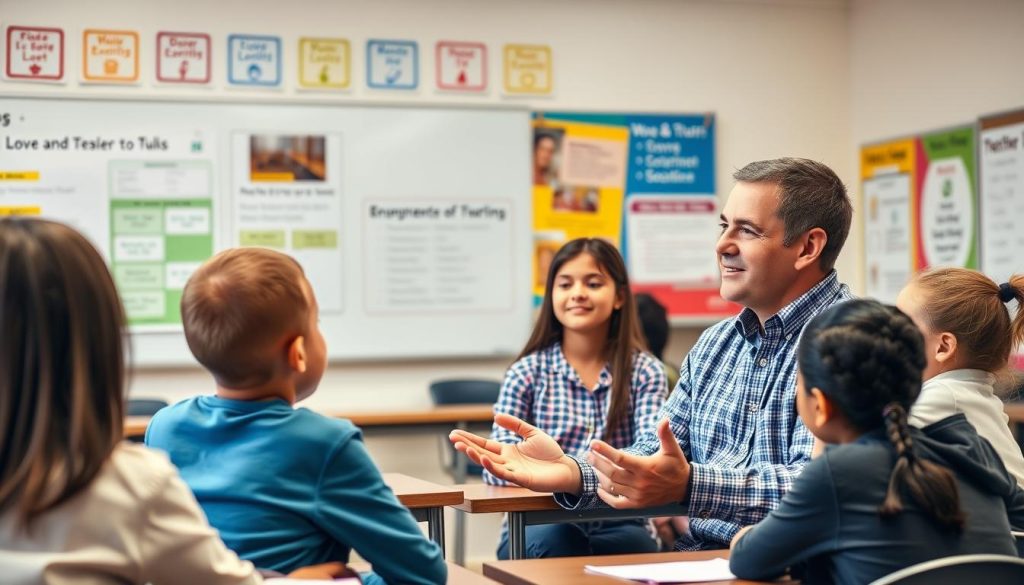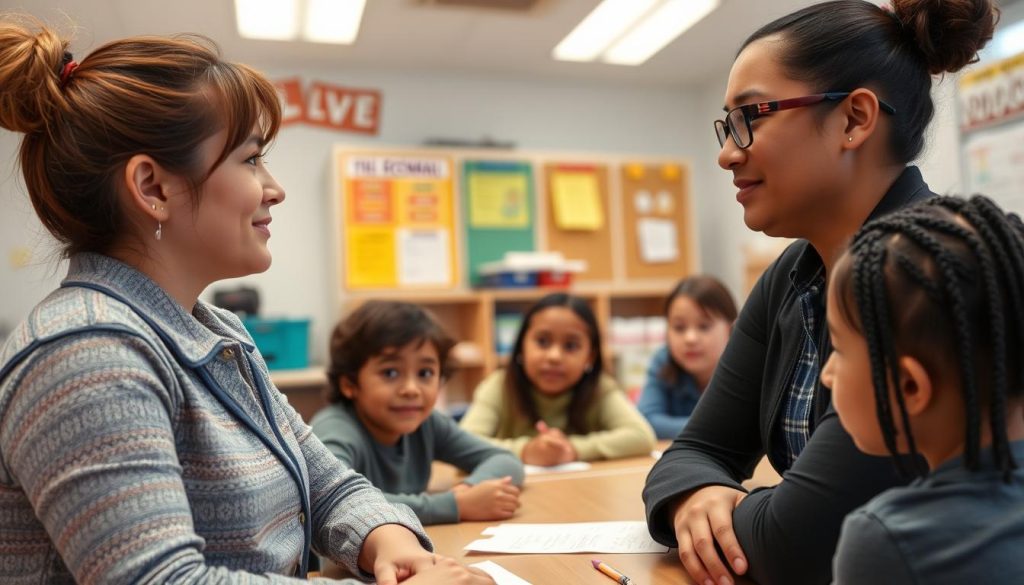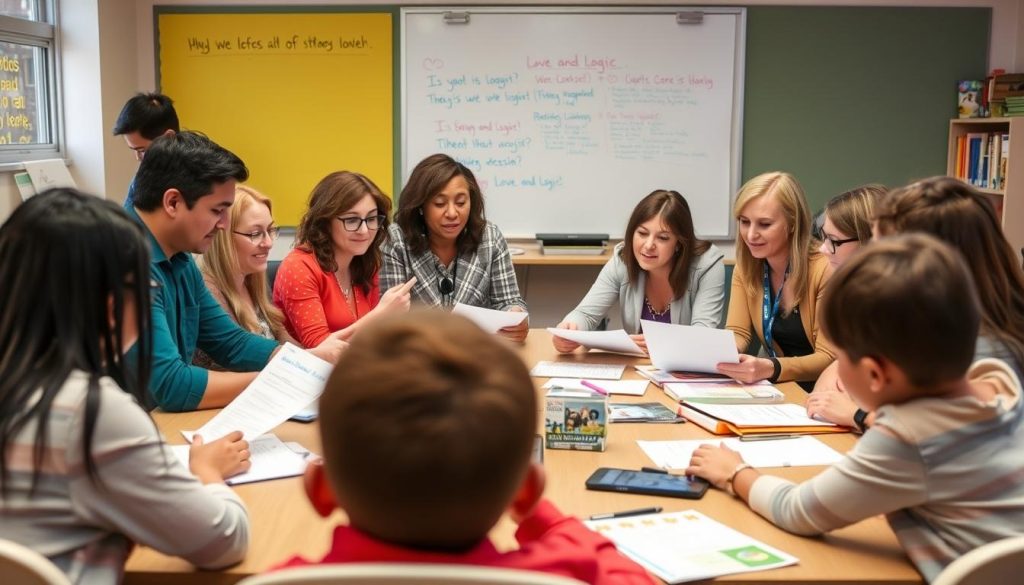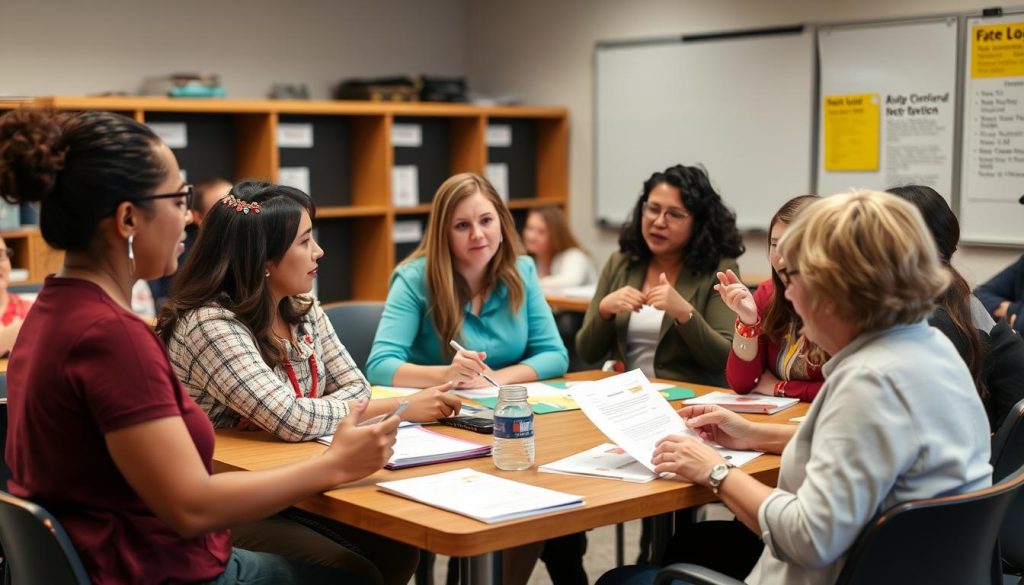When teachers implement Love and Logic principles consistently, they often report remarkable improvements in student behavior, academic engagement, and overall classroom atmosphere. This approach isn’t just another theoretical framework—it’s a practical set of teacher skills that can be applied immediately to create more harmonious learning environments.
Understanding the Core Principles of Love and Logic
The Love and Logic philosophy is built on several foundational principles that work together to create a positive educational environment. At its core, this approach emphasizes the importance of building strong relationships while maintaining clear boundaries. Teachers who master these teacher skills find themselves spending less time on discipline and more time on actual teaching.
The first key principle is that children learn best from experiencing natural and logical consequences of their choices rather than punishment. When students make mistakes, Love and Logic teachers view these as valuable learning opportunities rather than infractions requiring punishment. This shift in perspective allows students to develop critical thinking skills and internal motivation.
Another central tenet is the use of empathy before delivering consequences. When teachers respond to misbehavior with genuine empathy rather than anger or frustration, students remain receptive to learning from their mistakes. This approach helps maintain the student-teacher relationship even during disciplinary moments.
Love and Logic also emphasizes giving students appropriate choices within limits. By offering controlled choices, teachers help students develop decision-making skills while maintaining necessary classroom structure. This strategy respects students’ need for autonomy while ensuring the learning environment remains productive.
Finally, the approach encourages teachers to share control within limits. Rather than engaging in power struggles, Love and Logic practitioners find ways to set enforceable limits that maintain their authority while respecting students’ dignity. These teacher skills create classrooms where cooperation replaces confrontation.
Enhance Your Teacher Skills with Love and Logic
Discover how to implement these principles effectively in your classroom through our comprehensive professional development opportunities.
How Love and Logic Transforms Classroom Management
Implementing Love and Logic principles can revolutionize your approach to classroom management. Teachers who develop these specific teacher skills often report significant reductions in disruptive behavior and more time for meaningful instruction. Let’s explore the tangible benefits this approach offers to educators.
Benefits for Teachers
- Reduced teacher stress and emotional exhaustion
- Fewer power struggles with challenging students
- More instructional time as behavior issues decrease
- Improved teacher-student relationships
- Greater job satisfaction and professional longevity
- Enhanced teacher skills in conflict resolution
Traditional Approach Challenges
- Constant power struggles with students
- High teacher stress and potential burnout
- Significant instructional time lost to discipline
- Adversarial teacher-student relationships
- Ineffective punishment-based systems
- Limited development of student responsibility
One of the most significant advantages of the Love and Logic approach is how it shifts the emotional burden away from teachers. Traditional discipline methods often leave educators feeling drained as they take on responsibility for students’ problems. In contrast, Love and Logic equips teachers with specific language patterns and response techniques that place appropriate responsibility on students while maintaining supportive relationships.
Teachers who master these teacher skills report spending far less time addressing behavior issues and more time engaging students in meaningful learning. As one middle school teacher shared in a professional development session, “Before implementing Love and Logic, I spent nearly 40% of class time addressing disruptions. Now, that figure is below 10%, and my students are more engaged than ever.”

Research supports these anecdotal experiences. A study on classroom management approaches found that teachers trained in Love and Logic techniques reported 30% fewer disciplinary referrals and a 25% increase in perceived teaching effectiveness compared to control groups using traditional management methods.
Teacher Testimony: Sarah’s Experience
“After 12 years of teaching, I was considering leaving the profession due to burnout from constant behavior management issues. Learning Love and Logic techniques transformed my classroom and reignited my passion for teaching. The teacher skills I developed through this approach have been invaluable. My students are now more responsible, our classroom community is stronger, and I no longer dread coming to work each day.”
– Sarah K., 5th Grade Teacher
Practical Love and Logic Implementation Strategies
Implementing Love and Logic effectively requires developing specific teacher skills that may differ from traditional classroom management approaches. Here are practical strategies you can begin using immediately in your classroom:

1. The Power of Enforceable Statements
Traditional classroom management often relies on unenforceable demands like “Stop talking!” or “Pay attention!” Love and Logic teaches educators to replace these with enforceable statements that focus on what the teacher will do rather than attempting to control student behavior.
| Instead of Saying… | Try This Enforceable Statement | Why It Works |
| “Stop talking and get to work!” | “I teach students who are ready to learn.” | Places responsibility on students without creating a power struggle |
| “Don’t run in the hallway!” | “I allow students to walk in the hallways to walk with the class.” | Clearly states expectations while focusing on what you control |
| “Turn in your homework on time!” | “I grade papers that are turned in on time.” | Establishes natural consequences without threats |
| “Be quiet during the assembly!” | “We’ll stay at assemblies when we can listen respectfully.” | Sets clear expectations with implied consequences |
2. Providing Choices Within Limits
Offering controlled choices is one of the most valuable teacher skills in the Love and Logic toolkit. This technique gives students a sense of control while maintaining necessary boundaries. The key is to offer only choices you’re comfortable with either outcome.
“The key to Love and Logic is not the specific techniques but the relationship of mutual respect it creates between teachers and students. When students feel respected, they’re more likely to respect classroom rules and expectations.”
3. Responding with Empathy First
When students misbehave, Love and Logic teachers respond first with empathy before delivering consequences. This approach maintains the relationship while still holding students accountable. Developing this teacher skill requires practice but yields powerful results.
Traditional Response: “I’ve told you three times to stop talking! Now you’ll miss recess!”
Love and Logic Response: “Oh, how sad. I notice you’re having trouble working quietly today. Would you like to practice quiet work now, or would it be better to practice during recess time?”
The empathetic response acknowledges the student’s struggle without anger, offers a choice, and still maintains the consequence if needed. This approach teaches responsibility while preserving the student’s dignity.
Teachers who master this skill report significantly improved relationships with challenging students and fewer escalated confrontations.
Master Essential Love and Logic Teacher Skills
Our comprehensive training programs help you develop the specific language patterns and response techniques that make Love and Logic so effective.
4. Using One-Liners to End Arguments
Love and Logic provides teachers with simple, repeatable phrases that help end power struggles before they begin. These “one-liners” are essential teacher skills that prevent teachers from getting drawn into unproductive arguments.

What are some effective Love and Logic one-liners?
- “I respect you too much to argue.”
- “I’ll listen when your voice is calm like mine.”
- “What do you think you’re going to do?”
- “I love you too much to fight with you about this.”
- “I’ll be happy to discuss this when the arguing stops.”
These phrases work because they avoid engaging with argumentative behavior while still showing respect for the student. Teachers who develop these specific teacher skills report spending far less emotional energy on power struggles and more energy on positive interactions with students.
The Impact of Love and Logic on School Culture
When Love and Logic principles are adopted schoolwide, the impact extends far beyond individual classrooms. Schools that embrace this approach often experience a transformation in their overall culture and climate. The consistent application of these teacher skills across grade levels and departments creates a unified approach to student behavior and responsibility.

Research from schools implementing Love and Logic schoolwide indicates several significant improvements:
Administrators report that when all staff members develop consistent Love and Logic teacher skills, communication improves not just between teachers and students but among staff members as well. The shared vocabulary and approach to problem-solving creates a more cohesive educational community.
Principal Perspective: Transforming School Culture
“Before implementing Love and Logic schoolwide, our teachers were using dozens of different behavior management systems, creating confusion for students moving between classrooms. After training all staff in Love and Logic principles and developing consistent teacher skills across the building, we saw a 65% reduction in office referrals within one semester. More importantly, the entire feel of our school changed. Teachers reported less stress, students became more responsible, and parent satisfaction increased dramatically.”
– Michael R., Elementary School Principal
Parents also notice the difference in schools implementing Love and Logic. When students experience consistent expectations and consequences both at school and at home, their ability to make responsible choices improves dramatically. Many schools offer parent workshops on Love and Logic principles to create this consistency.
Enhancing Your Teacher Skills Through Love and Logic Training
Developing proficiency in Love and Logic techniques requires more than just reading about the principles—it requires dedicated professional development and practice. Teachers who invest in building these specific teacher skills often find the return on investment substantial in terms of classroom management effectiveness and professional satisfaction.

Comprehensive Love and Logic training typically covers:
- Foundational principles and philosophy
- Specific language patterns that promote student responsibility
- Techniques for delivering consequences with empathy
- Strategies for building positive relationships with challenging students
- Methods for teaching students problem-solving skills
- Approaches for working with parents using Love and Logic principles
Many schools find that bringing Love and Logic training on-site allows for customization to their specific school culture and challenges. This approach also builds a community of practice where teachers can support each other in developing these teacher skills.
Ready to Transform Your Teaching Experience?
Discover our comprehensive Love and Logic training programs designed specifically for K-12 educators. Earn professional development credits while mastering classroom management techniques that work.
For teachers who prefer self-paced learning, online courses and resources are also available. These options allow educators to develop their teacher skills gradually while immediately implementing techniques in their classrooms.
Ongoing coaching and support are crucial elements of successful implementation. Teachers who receive feedback and guidance as they develop their Love and Logic teacher skills report greater confidence and more consistent application of the techniques.
Professional Development Opportunity: Credits for Teachers offers specialized Love and Logic training programs that can be completed while you teach. These programs provide both the theoretical foundation and practical application strategies needed to transform your classroom management approach. Learn more about earning credits while enhancing your teacher skills.
Conclusion: Creating Lasting Positive Change
Implementing Love and Logic principles represents more than just adopting a new classroom management system—it’s about fundamentally shifting how we view the teacher-student relationship and the purpose of discipline. When educators develop these essential teacher skills, they create learning environments where students can thrive academically, socially, and emotionally.
The journey to mastering Love and Logic techniques takes time and practice, but the results—reduced teacher stress, improved student behavior, and a more positive school culture—make the investment worthwhile. As one veteran teacher put it, “Learning Love and Logic was the single most valuable professional development of my 20-year career.”

Whether you’re a new teacher seeking to establish effective classroom management or a veteran educator looking to refresh your approach, Love and Logic offers practical, proven strategies that can transform your teaching experience. By focusing on relationships, responsibility, and respect, this approach helps create school environments where genuine learning can flourish.
Begin Your Love and Logic Journey Today
Take the first step toward transforming your classroom and enhancing your teacher skills with our comprehensive Love and Logic resources and training programs.




